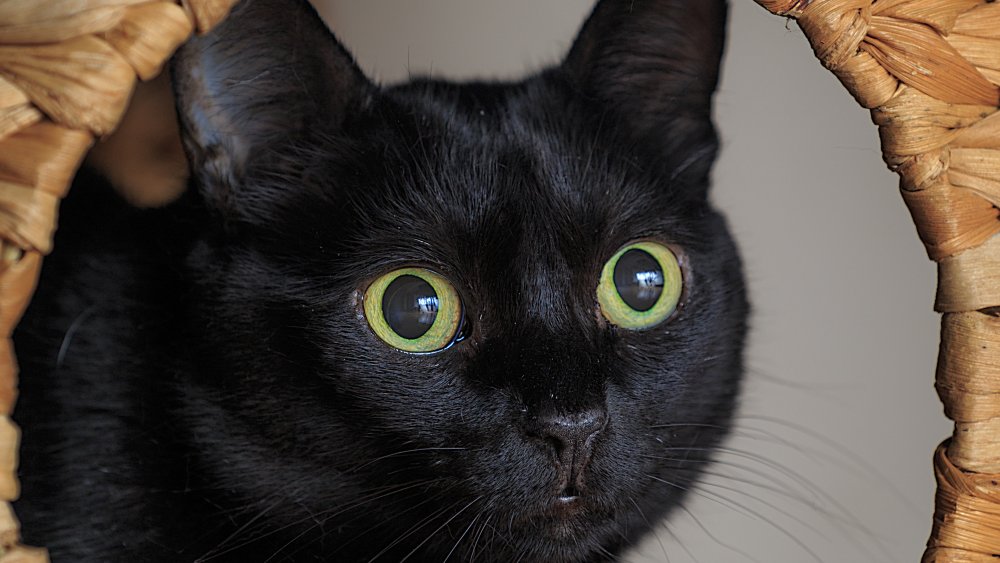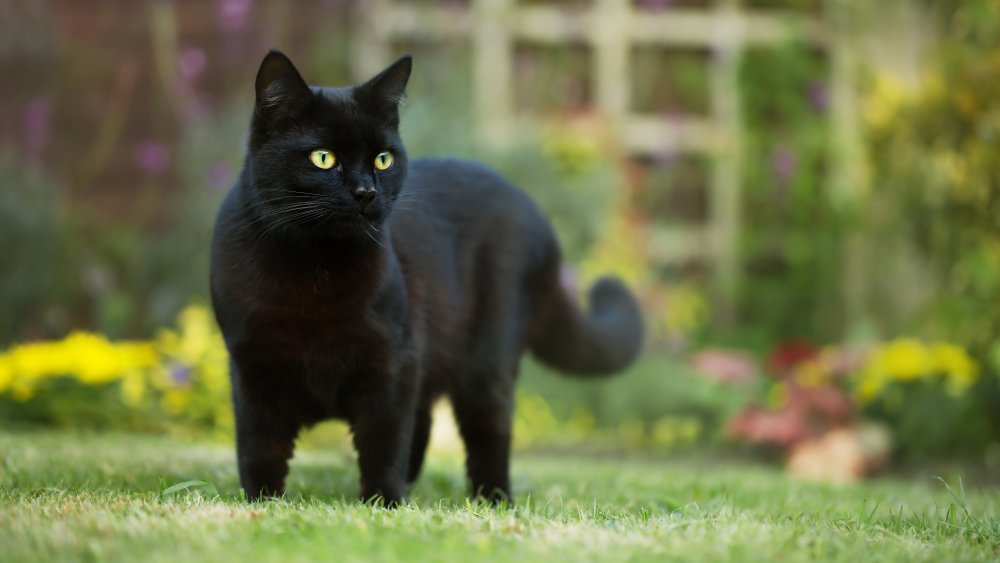Myths About Black Cats You Can Stop Believing
Cats might be the new kids on the block, when it comes to domestication — the world's oldest dog breeds were around a long time before the world's oldest domestic cats — but surely, thousands of years is plenty of time to shake off any bizarre superstitions ... for instance, all of those dark (pardon the expression) legends assigned to black cats. True cat believers will tell you that all cats are distinct and individual, and that it's just plain cruel to lump them all together like that, but people still get nervous around these sly felines. As the Peninsula Humane Society explains, associating black cats with evil dates back to Ancient Greek mythology. Hera, the wife of Zeus, became indescribably annoyed with a servant, Galinthias, who, said Hera, was "impeding" the birth of Heracles. The servant was transformed into a black cat and found other employment as an assistant to Hecate, goddess of witchcraft. So there's precedent.
There's an urban legend out there that black cats get adopted from shelters around Halloween, to be used in ritual animal sacrifices, but that's just silly, says the Kentucky Humane Society. Not only is it not true, but black cats are the most infrequently adopted cats from a shelter — taking up to two to three times longer to get adopted.
Black cats are not inherently evil. Yes, really.
The Peninsula Humane Society reminds us that back in Europe in the Middle Ages, some folks believed that witches could shapeshift into the form of a black cat, ala a skinwalker, and that black cats functioned as witches' "familiars," assisting in some way in performing dark arts. (How might a cat of any color provide assistance without an opposable thumb? Your guess is as good as anybody's.) For quite some time it was open season on black cats, which in turn led to a proliferation of rats, who helped spread Black Death, which killed approximately a third of the population of Western Europe. So, no. Not helpful. Early American colonists brought the superstition with them to North America.
Some believe that a black cat crossing your path is bad luck, but honestly, if you live with a cat of any color, who hasn't had the animal try to wrap itself around your legs when you're trying to walk? Arguably, black cats are visually stealthy. Out of the shadows, between your feet, hilarity results. But bad luck? Not really. And remember that the Egyptian goddess Bastet was often depicted in the form of a black cat. So, context, maybe.
Black cats have been getting a bad rap for millennia. Thinking of adding a cat to your life? Consider adopting one of the black cuddle-bundles from your local shelter. After all, you aren't superstitious, are you?

